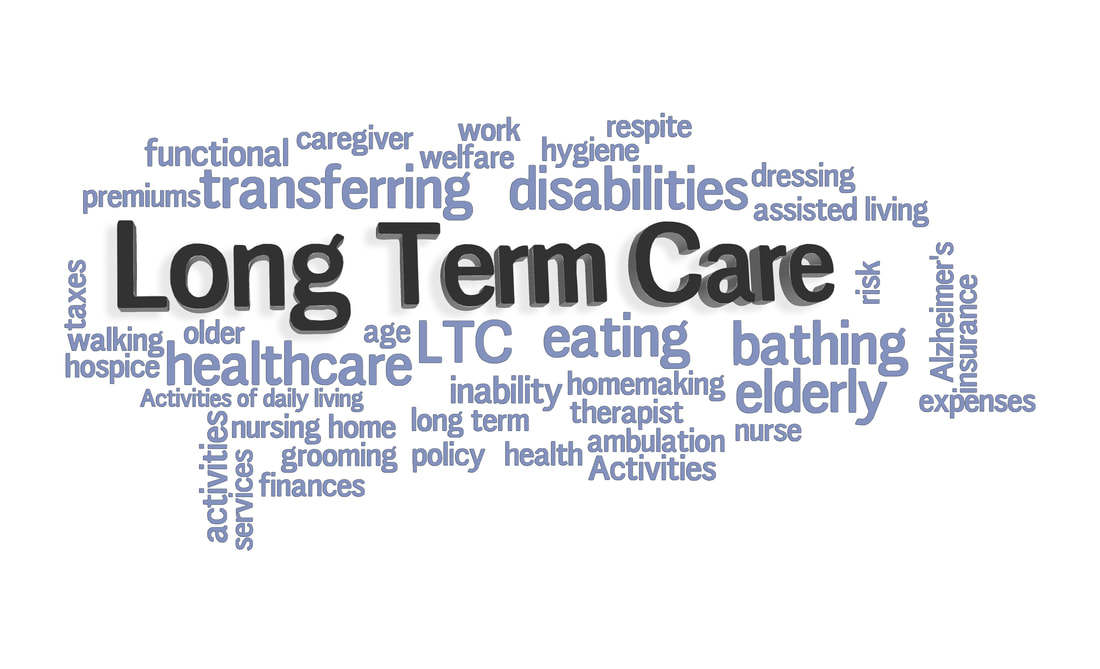Hecht Insurance Advisors, LLC Blog |
Second-to-Die Life Insurance: Ideal for Estate Tax Planning and More
This can be important when a family's wealth is tied up in illiquid assets that are difficult to sell. With a second-to-die life policy in place, the family or estate executors receive the tax-free cash death benefit right away, and can use that to pay estate taxes, rather than be forced to sell off assets like small businesses and real estate to raise the cash.
Otherwise, heirs may be forced to sell assets in the estate at heavily discounted prices, or at a very poor time in the market to sell, to meet the estate tax deadline. Second-to-die policies also typically have lower premiums for a given death benefit than standard single-insured life insurance policies. Use of trusts to move life insurance out of the taxable estate Who owns the insurance policy itself? It may be prudent to set up an irrevocable trust, and have the trust own the life policy, rather than own it directly in your own name. Otherwise, the life insurance policy would be considered part of the taxable estate, which would increase your tax bill. Setting up a properly constructed irrevocable trust will help you avoid this problem. To set up the trust, speak with a qualified attorney and your tax advisor. Only a licensed attorney can write the documents required to set up the trust and ensure that it meets the requirements necessary for the assets in the trust to be considered separate from the taxable estate of the deceased. Once the trust is established, the trust can then become the owner of the life insurance policy. But, the applications of the second-to-die life insurance policy don't stop there. Even if you don't expect your estate to be big enough to be subject to federal estate tax, there are a number of other uses for this type of life insurance:
There are other specialized applications where second-to-die life insurance works extremely well as a planning tool. To see if this type of policy would benefit your family, call us at 540-712-2199, schedule an appointment, or video chat.
0 Comments
Lower-Income Gen Xers, Baby Boomers Will Run out of Money in Retirement: Study Recent research showed that baby boomers and Generation Xers who are in the lower income brackets are more likely to fall short of their retirement goals, which will leave them lacking enough money to live on.
Researchers at Northwestern Mutual Planning & Progress found that some people may run out of funds within their first year of retiring, and that 22% of Americans have less than $5,000 saved for retirement. Even some people who fell in the highest income brackets would likely run out of money at some point during retirement. The outlook for many of their futures remains grim. The survey found:
After gathering these findings and analyzing them, researchers point out that people who are in the lowest income bracket are extremely vulnerable. With the possibility of not only running out of funds but running out quickly, people who are in this category should be concerned and take steps to enhance their retirement preparedness. People in all categories, however, can find themselves at risk, and each person's likelihood of running low on funds will depend not only on their current financial status, but also on their health status. Not all health issues are predictable, and what exists now may be complicated later. Some people may need extra funds for health care. Even if health facilities for skilled nursing care will pay 100% of costs, some households will still run out of money far before they should. What to do? First off, do not expect Social Security to keep you afloat in your golden years. It won't provide enough income for you to live off in retirement. If you're like the typical recipient, your benefits will cover roughly 40% of your previous income, assuming that Congress doesn't move to slash future Social Security benefits. If you have not started saving for retirement, regardless of your age, start doing so now. Thanks to compounding interest and earnings, the more you start socking away now, the more money you can earn in your retirement funds in the future. If you begin setting aside a decent chunk of money each month, and continue doing so consistently for the remainder of your career, you have more than enough opportunity to catch up. The following shows how much money you would have when you retire at the age of 67 if you start putting away $500 a month at different ages:
You should review your retirement plan and accounts annually and increase how much you set aside if you feel you are not meeting your retirement savings goals. It's never too late. Update your options as needed, and take into account any long-term changes in health conditions. To learn more about your options, call us. The specter of having a severe illness or injury that requires long-term care is a scary proposition for most anybody, not to mention the financial obligations you would face. But trying to time when is the best age to purchase a policy is not an easy decision. Obviously, you don't want to buy the policy too early and unnecessarily spend thousands of dollars on premium over your life for coverage you may not need until you are much older. The younger you are when you buy a policy, the lower your premiums. That said, people typically do not purchase long-term care policies in their 30s or 40s since they are looking at a long time-horizon for when they would need to file a claim. After all, the policy may not be needed for 30 years or more. At the same time, if you wait until you are in your late 60s or early 70s, the premiums may be cost-prohibitive for you - not to mention you may have trouble finding an insurer willing to write your policy. For example, based on the "Genworth 2019 Cost of Care Survey," if purchased today, a long-term care policy with a maximum daily benefit of $150 a day for three years would cost an estimated:
As you can see, the ideal time cost-wise is probably in your 50s and 60s. But before pulling the trigger, you should think about how the premiums fit into your life and other obligations. If you have children who have not yet graduated from college, they will be your major concern. You should carry enough life insurance to see them through. But after your children, if any, are on their own, you might take the funds you were using to pay for life insurance premiums and use them to finance long-term care insurance premiums instead. What policies cover Long-term care insurance covers:
When shopping for a policy, you will have many choices to make: The trigger - Policies will have a trigger for when payments can commence. Often, policies base qualification on cognitive impairment or the need for assistance in at least two activities of daily living (dressing, toileting, eating, transferring, bathing and continence). Inflation riders - As you know, health care inflation is never-ending. While $150 may be sufficient to cover your cost of care today, that may not be the case in a decade or 20 years from now. With long-term care insurance, you often have the option to buy an inflation rider with the policy, which will increase the allowance for daily benefits by a certain percentage a year, like 5% on a flat or compound basis. But, you need to know that this type of rider comes with a price in increasing premiums. Some experts recommend that buyers aged under 70 purchase an inflation rider, while anybody older than 70 does not need to do so. Elimination period - The elimination period is the time the insured must wait before the policy starts paying out. During that period of waiting, you will be on the hook for long-term care expenses. Typically, the waiting period is anywhere from one to 90 days, but it could be even longer. The longer the elimination period, the lower the premium. That said, the premium savings you achieve by choosing a longer elimination period may not be worth it for you. Don't fall into the disclosure trap One thing you have to be very careful about when applying for long-term care insurance is full disclosure about your pre-existing conditions or prior illnesses. If you fail to tell the insurer about an illness, the company may refuse you coverage at the time you file for benefits. It's in your best interest to be upfront about your health, as you would rather be denied during the application process than have your claim denied after paying your premiums for years. There are other options available: There are life and annuity products with long-term care options available depending on your health, age, and resources that can work well too. Ready find solutions to your long-term care needs?
Getting All the Facts for Your Estate Planning
The threshold for lifetime gift and estate tax increased - In 2020, the amount has risen to $11.58 million for individuals; it is $22.8 million for couples. This is the maximum amount of gifting via money or asset transfer allowed during a person's lifetime without tax consequences. The limit more than doubled in 2019 after tax legislation was signed into law by President Trump.
The annual gift exclusion amount is $15,000 - The annual federal gift tax exclusion allows you to give away up to $15,000 ($30,000 for couples) in 2019 to as many people as you wish, without those gifts counting against your $11.58 million lifetime exemption. Some types of gifts are not subject to this limit. For example, gifts to a spouse, a medical fund or an education fund are not included. Also, education and medical gifts are not taxable. When making medical or education gifts, transfer the funds directly to the institution rather than sending them to an individual recipient. Lifetime exclusion amount portability is still an option - Estate tax laws started allowing surviving spouses to use remaining lifetime exclusion amounts of their deceased spouses in 2011. In addition to simplifying estate planning, this gave couples a way to access exclusion amounts. Couples can transfer up to $22.8 million of their taxable property to their heirs without estate tax penalties. However, transfers must be made by election in the estate. The gift and estate tax effective rate is 40% - If your estate is under $11.8 million, congratulations: The federal estate tax will not apply to your estate. Any amounts over that threshold will be taxed at marginal tax rates that cap out at 40% for an estate worth more than $1 million over the cap. Remember state gift tax laws - While the rules covered in the previous sections apply to federal laws, they do not apply to state laws. Many states have laws that require estate and gift taxes. If the taxes include lifetime exclusion limits, they will be lower than the federal limits. To learn about individual state laws, discuss concerns with an agent. It is not possible to avoid these taxes in the states where they are required. The takeaway While estate planning is not something most people think about often, it should be considered every year - and when any major life changes happen. A new addition to a family, a marriage, a death in the family, getting a major promotion and big health changes are just a few examples of times when estate plans should be reviewed and changed as necessary. Neglecting these changes can cost a person's heirs a considerable amount of time and money. Stay on top of these issues to keep plans running smoothly. Call us 540-712-2199 to learn more about optimizing estate planning. Five Smart Things You Can Do with Life Insurance Cash Value
Stay put -Let life insurance be life insurance. Your money is growing tax-deferred within the policy. And in the event of your death, an amount much greater than your current cash value will generally pass to your heirs, tax-free. That's a significant benefit right there, and a compelling reason not just to let your policy grow, but to add more premium to it if you can. Borrow against the death benefit - You can withdraw accumulated dividends, and then borrow against the rest of it, generally with no tax consequence, as long as you don't completely surrender the policy. Interest will accrue, but you don't have to repay the loan yourself unless you want to. If you don't pay it back, the insurance carrier will simply subtract the balance due from any death benefit they pay to your beneficiaries. Cash out the policy altogether - This option lets you get substantially all the cash in your policy. However, you may be subject to capital gains tax to the extent your cash value exceeds the amount you paid in. Exchange for another life insurance policy - If you choose, you can execute a Section 1035 exchange of one life policy for another, tax-free. You may opt to do this if you find ongoing premiums at a new carrier are lower for some reason, or if you want some specific protections or riders you can't get from your old carrier. For example, you may be able to exchange a straight-ahead universal or whole life insurance policy for a policy that also provides a benefit in the event you need long-term care insurance. Exchange for an annuity - You can also exchange a life insurance policy for an annuity, tax-free, under Section 1035. You might choose to do this if you decide you no longer want the life insurance protection, but you do want regular and reliable income. For example, if your beneficiaries are grown up and no longer rely on your life insurance death benefit, you may execute a 1035 exchange to a lifetime income annuity - maximizing your income over your expected lifetime, rather than paying a large death benefit. You can choose a joint and survivor annuity to guarantee income to your spouse as well. The takeaway Life insurance is among the most flexible and powerful resources you can have in your portfolio as you grow more established. But to have all of the above options later in life, you must plan ahead now. Talk to us today. We can help you develop a plan that meets your needs and financial objectives.
5 Ways You Can Maximize Your Social Security Benefits
Clearly, Social Security is not sufficient income for most of us by itself to fund an acceptable retirement lifestyle. But there are some things you can do to boost your monthly payout.
Why You May Want to Keep Your Life Insurance in Retirement
As a wealth transfer instrument Life insurance can help you transfer assets to your loved ones. The nice thing about life insurance is that the death benefit is income-tax-free and possibly estate-tax-free, if properly constructed.
It also provides an avenue for ensuring that your estate can be split among your children, particularly if you also have assets like a family business, which is not easy to split up if it is to continue as an ongoing concern - especially if some of the adult children are not interested in running the business. Life insurance in this case gives those who aren't interested in the family business a way to still receive a cash amount to the value of the business. Paying for expenses The last thing you want to do is to pass on your health care debts to your surviving spouse. A life insurance benefit can ensure that your family has the funds necessary to pay your medical bills, without reaching into their own pockets. It can also help them pay off an existing mortgage and other types of debt. In addition, it can help pay for funeral costs. The average funeral costs between $7,000 and $9,000. This includes viewing and burial, basic service fees, transporting remains to a funeral home, a casket, embalming, and other preparation. The average cost of a funeral with cremation is $6,000 to $7,000. Paying for a chronic diseaseMany life insurance policies allow you to access benefits to pay for treatment and care for a chronic and end-of-life illness before death. Policies define chronic illness as either cognitive impairment (e.g., Alzheimer's disease) or the inability to perform two out of six activities of daily living. The catch is you need to get a certification from a medical professional. As a charitable giftSome retirees have a non-profit organization to which they wish to leave their life insurance policy benefit. If so, do make sure that the organization will accept your policy and has a 501 (c) (3) not-for-profit status. Some organizations might need the life insurance policy arranged a certain way or not be able to handle the donation at all. If you name the charity as the owner and beneficiary of the insurance policy, then you can deduct the premiums from your federal taxes. The Takeaway While the above are all benefits of keeping a life insurance policy in force while in retirement, keeping the policy also has costs to you, including paying the premium. And if you at some point dropped coverage and decided to get a new policy after retirement, you have to be prepared for much higher premiums due to your age. Also, any health issues you might have developed during the intervening period could prevent you from obtaining coverage at the same rates, if you are able to get coverage at all. That said, if you maintain coverage past the age of 65, you can ensure that your loved ones can be well taken care of and that any associated expenses or debts can be paid for by them after you pass. New Law Makes Big Changes to Retirement Savings Plans President Trump has signed landmark legislation that will make the largest changes to the U.S. retirement system in years. The new Setting Every Community Up for Retirement Enhancement (SECURE) Act makes sweeping changes on rules governing individual retirement accounts and employer-sponsored 401(k) plans. They affect not only people enrolled in 401(k)s and IRAs, but also small firms that want to offer 401(k)s to their staff. Most of the changes the law ushers in apply to the 2020 tax year and beyond, unless noted below. Here are some of the main changes:
|
Contact Us(540) 712-2199 Archives
May 2023
Categories
All
|







 RSS Feed
RSS Feed